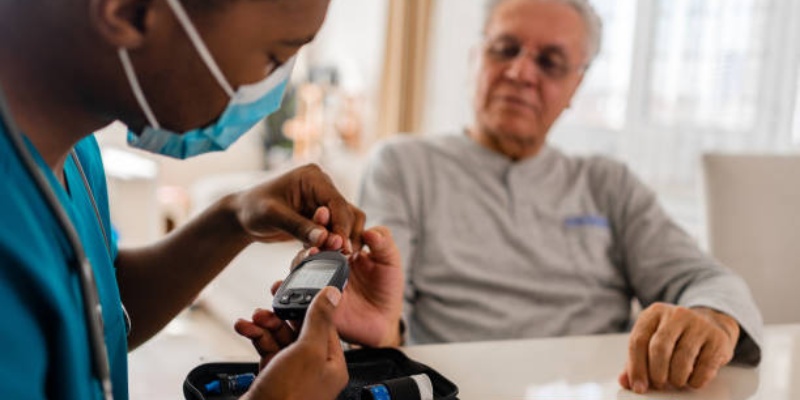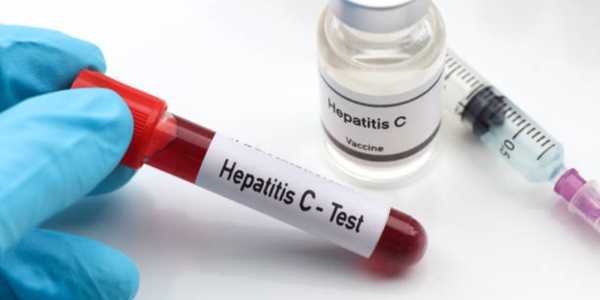You know that feeling when something feels "off" with your body, but you can't quite put your finger on it? Maybe you've brushed off little changes, thinking they're just part of Stress or ageing. But what if those small shifts are your body sending flares about something bigger—like diabetes? I've been there, too, ignoring symptoms until they piled up like unopened mail. Let's talk about the signs you shouldn't shrug off, in plain language, because catching diabetes early could change everything.
You know that feeling when something feels "off" with your body, but you can't quite put your finger on it? Maybe you've brushed off little changes, thinking they're just part of Stress or ageing. But what if those small shifts are your body sending flares about something bigger—like diabetes? I've been there, too, ignoring symptoms until they piled up like unopened mail. Let's talk about the signs you shouldn't shrug off, in plain language, because catching diabetes early could change everything.
1. You’re Peeing More Than a Racehorse
You wake up three times a night to go to the bathroom. Your coworkers joke that you're the office's "hydration champion." But here's the truth: frequent urination isn't just about drinking extra water. When blood sugar levels spike, your kidneys go into overdrive to flush out the excess glucose. Suddenly, you sprint to the restroom every hour, day or night. If your bladder feels like running a marathon without you, it's time to pay attention.

2. Thirst That Just Won’t Quit
Chugging water like it’s going out of style? No matter how much you drink, your mouth feels as dry as a desert. This isn’t normal. High blood sugar pulls fluids from your tissues, leaving you parched. It’s a vicious cycle: more sugar in your blood means more bathroom breaks, which means dehydration, which makes you thirsty again. If you’re refilling your water bottle nonstop, don’t dismiss it as “just being thirsty.”
3. Hunger Pangs That Hit Like a Truck
You ate an hour ago, but your stomach growls like you haven't seen food in days. When your body can't properly use glucose for energy (thanks to insulin resistance), your cells start screaming for fuel. So you eat… and eat… and still feel empty. This isn't about willpower—it's your body's way of saying, "Hey, something's wrong here."
4. Fatigue That Makes You Want To Nap At Lunch
Sure, life is tiring. But if you’re logging enough sleep and still feel like you’re dragging a boulder everywhere, diabetes might be the culprit. When glucose lingers in your blood instead of fueling your cells, your energy tanks. Imagine your body’s battery stuck at 10% all day. That’s what uncontrolled blood sugar feels like.
5. Blurry Vision That Isn’t Fixed By Squinting
You're reading a menu, and suddenly, the words look fuzzy. You rub your eyes, blame screen time, or joke about needing new glasses. But here's the kicker: high blood sugar can swell the lenses in your eyes, messing with focus. If your vision goes from sharp to smeared overnight, don't wait for an eye doctor's appointment—check in with your primary care provider first.

6. Cuts And Scrapes That Take Forever To Heal
I tripped over a sidewalk crack, and now that scrape looks like it's been camping out on your knee for weeks. Slow healing is a red flag. High blood sugar weakens your immune system and damages blood vessels, making it harder for your body to repair itself. A tiny cut that turns into a weeks-long project isn't just annoying—it's a sign your body needs support.
7. Tingling Hands Or Feet That Feel Like Pins And Needles
Ever wake up with your arm "asleep" after sleeping funny? Now imagine that numbness or tingling sticks around all day, every day. High blood sugar can damage nerves over time, starting with subtle sensations in your extremities. This condition, called neuropathy, often creeps up slowly. If your toes feel wrapped in wool or your fingers tingle for no reason, don't ignore it.
8. Recurring Infections That Won't Back Off
Yeast infections. UTIs. Skin rashes that come back like a bad penny. High blood sugar creates a breeding ground for bacteria and fungi. If you're battling infection after infection, your body might scream for help. Antibiotics or antifungals treat the symptom—not the cause.
9. Unexplained Weight Loss (When You’re Not Trying)
Losing weight without dieting or hitting the gym sounds like a dream, right? Not so fast. When your body can't get energy from glucose, it burns fat and muscle instead. This can lead to sudden weight loss, even if you eat normally. If the scale plummets for no reason, it's not a victory—it's a warning.
10. Mood Swings That Rival a Soap Opera
One minute, you're calm; the next, you're snapping at the barista for getting your latte order wrong. Blood sugar swings can mess with your emotions as much as your energy. Irritability, anxiety, or feeling "hangry" all the time aren't just personality quirks—they're clues your body is struggling to stay balanced.

What To Do If These Signs Sound Familiar
Let's say a few of these hit home. First, breathe. Recognizing these signs is the first step toward taking control. Schedule a doctor's appointment. They'll likely order blood tests to check your glucose levels. In the meantime, start tracking your symptoms. Write down how often you're thirsty or tired or running to the bathroom. Small changes—like cutting sugary drinks or taking a walk after meals—can make a difference while you wait for answers.
Understanding Your Risk Factors
Knowledge is power. Some things—like family history or age—can increase your risk. But lifestyle factors matter, too. If you're overweight, sedentary, or have high blood pressure, your odds climb. The good news? Many risk factors are within your control. Minor tweaks, like swapping soda for sparkling water or adding a daily walk, can lower your chances.
The Bottom Line: Listen To Your Body
Diabetes doesn't always announce itself with flashing lights. Often, it whispers through subtle changes you might dismiss as "normal." But here's the truth: you know your body better than anyone. If something feels off, trust that gut feeling. Early detection isn't just about managing symptoms but protecting your future self.
- Share this article:
-
![How To Spot Silent Symptoms Of Hepatitis C Before It’s Too Late]() Health & Medical Treatment
Health & Medical Treatment - How To Spot Silent Symptoms Of Hepatitis C Before It’s Too LateHepatitis C is a stealthy virus. It lurks in your body, often for decades, without making its presence known. By the time symptoms manifest, the damage may already be extensive. I've studied health issues for years and found that knowing Hepatitis C's quiet warnings may save your life. Let's decode how to recognize these silent symptoms and act early.
-
![How To Make Your Foundation Last All Day – No Touch-Ups Needed!]() Beauty
Beauty - How To Make Your Foundation Last All Day – No Touch-Ups Needed!Does your foundation melt by midday? If you struggle with oily skin, humidity, or lack of touch-ups, it's time to try the right products and techniques. These expert tips will help keep your foundation smooth and lasting all day, regardless of skin type.








